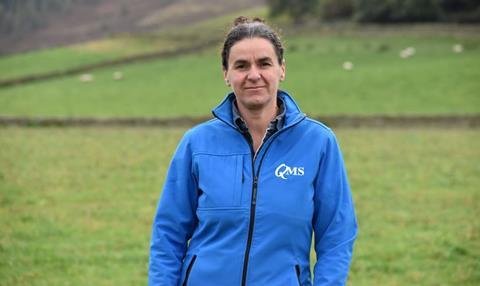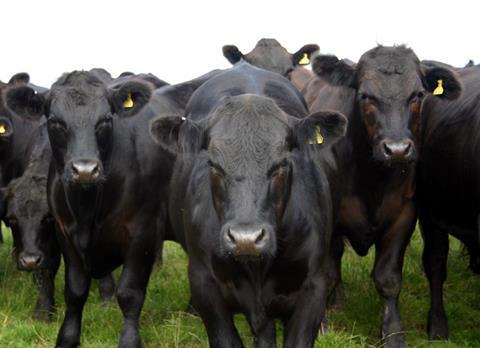[IN-DEPTH READ]
Researchers who claim to have developed a new diet scoring system that “incorporates the best current scientific evidence of food effects on both health and the environment”, used the seriously disputed ‘Eat-Lancet reference diet’ as a foundation for their study.

Presented at the annual meeting of the American Society for Nutrition, the research claimed that eating more “planet-friendly foods” could help people live “longer, healthier lives.”
According to the research, these “planet-friendly” foods include whole grains, fruit, non-starchy vegetables, nuts and unsaturated oils. Foods considered “harmful to the environment and human health” include products such as eggs and red and processed meats.
As part of the study, researchers created what they call the Planetary Health Diet Index (PHDI), which was used to analyse the data of participants to assess the risk of total and cause-specific mortality.
However, within the study’s abstract, it states that researchers developed its index tool, PHDI, to “quantify adherence to the EAT-Lancet reference diet.”
The 2019 Eat-Lancet paper and its reference diet were strongly contested by the meat industry at the time for their potential consequences on public health and the perception of meat’s environmental impact.
On Sunday 23rd July, the PHDI research was picked up by media outlets, including The Independent and Sky News, who ran with headlines such as 'Planet-friendly' diet could reduce risk of death from chronic illness by 25%, study finds’.
What is the Eat-Lancet Commission and its refence diet?
The EAT-Lancet reference diet, which is outlined in the 2019 EAT–Lancet Commission on healthy diets from sustainable food systems (Eat-Lancet Commission), is a diet which its authors claimed “[provides] a basis for estimating the health and environmental effects of adopting an alternative diet to standard current diets.”
According to The Lancet’s 2019 paper, its “healthy reference diet” can be described by the following attributes:
- largely consists of vegetables, fruits, whole grains, legumes, nuts and unsaturated oils;
- includes a low to moderate amount of seafood and poultry;
- includes no or a low quantity of red meat, processed meat, added sugar, refined grains and starchy vegetables.
Within the paper, the authors state that scientific targets for healthy diets and sustainable food systems are integrated into a common framework. Application of this framework to future projections of world development, the authors claimed, indicates that food systems can provide healthy diets (i.e., reference diet) for an estimated global population of about 10 billion people by 2050.
It added, however, that even small increases in consumption of red meat or dairy foods would make this goal “difficult or impossible to achieve.”
In fact, the authors argued that transformation to healthy diets by 2050 will require substantial dietary shifts, including a greater than 50% reduction in global consumption of foods as red meat and sugar.
The paper also claimed that dietary changes from current diets to “healthy diets”, which limits a person’s intake of red meat, are likely to substantially benefit human health, averting up to 11.6 million deaths per year, a reduction of 19-23.6%.

Potential implication for public health
Trade bodies responding to the Eat-Lancet Commission in 2019 showed serious concern about its findings and the potential implications for public health.
Chair of Quality Meat Scotland Kate Rowell said at the time that she was concerned the report suggested a global intake of red meat per day well below UK NHS guidelines of 70g per day or 500g per week.
Rowell feared there was “real danger of public confusion” on red meat’s role in a healthy diet and people could miss out on vital nutrients such as zinc and iron, which are provided by red meat.
Ian Stevenson, chief executive of the Livestock and Meat Commission for Northern Ireland (LMC), spoke out about the paper’s potential impacts on women’s health. He said the suggestion of a 50% reduction in red meat to 14g a day was concerning considering that many Irish women, according to the National Diet and Nutrition Survey, were found to have low levels of iron intake.
This point was echoed by former president of the Scottish Association of Meat Wholesalers Frank Clark, who said: “Scotland’s red meat industry is a major contributor to the health and well-being of those who maintain a healthy and balanced diet in which red meat provides consumers with essential nutrients, including iron, zinc and B vitamins.”
At the time, Clark spoke about a previous issue of The Lancet, which featured a study showing that eating red meat and dairy products could reduce the chance of death by a quarter.

“Well-intentioned by potentially flawed” view of meat's environmental impact
A need for context, with regard to meat’s environmental impact, was the dominant theme amongst industry response to the Eat-Lancet Commission.
Will Jackson, AHDB’s strategy director for Beef & Lamb [at the time], said at the time that the report “appears to be another example of well-intentioned but potentially flawed thinking on how we reduce our impact on the environment.”
He explained: “Despite the modelling presented by the EAT Lancet Commission, no study has specifically assessed the environmental impact of diets based solely – or largely – on plant-based protein, as opposed to a mixed diet containing animal protein.
“The real danger of this report is that, because it is so well backed financially and is being launched across the globe with little acknowledgment of regional differences, it will be taken at face value by people in the UK who may then put their health at risk and even worsen their personal carbon footprint.”
QMS’ Kate Rowell consolidated Jackson’s view, saying: “It’s important to put the emissions generated by red meat production into context and ensure that people are fully informed about the facts on our industry.
“Focussing on this one area diverts attention from more damaging environmental factors, for example transportation and carbon-based energy.”
“The real danger of this report is that, because it is so well backed financially and is being launched across the globe with little acknowledgment of regional differences, it will be taken at face value by people in the UK who may then put their health at risk and even worsen their personal carbon footprint.”
Will Jackson, AHDB.
Meat Advisory Panel member Professor Nigel Scollan also waded in on the report’s handling of livestock emissions. He said: “By putting too much emphasis demonising animal-based foods, we are in danger of being distracted from more harmful environmental factors such as the carbon monoxide produced by cars or carbonised energy production.
“At a time when the population is increasing so dramatically, it is essential that meat and dairy production continues to ensure global food security is achieved.”
The British Meat Processors Association (BMPA) said that the report seemed to depict livestock farming as “a static activity that’s incapable of evolving to reduce its environmental impact.”
It added that the paper’s recommendations to “ditch meat in favour of fruit” could increase food waste: “According to the Food and Agriculture Organisation (FAO), 40-50% of fruit and veg is wasted while only 20% of meat/dairy is wasted. More fruit and veg production means even more food waste. Food waste already accounts for 8% of global emissions.”
This story was originally published on a previous version of the Meat Management website and so there may be some missing images and formatting issues.















